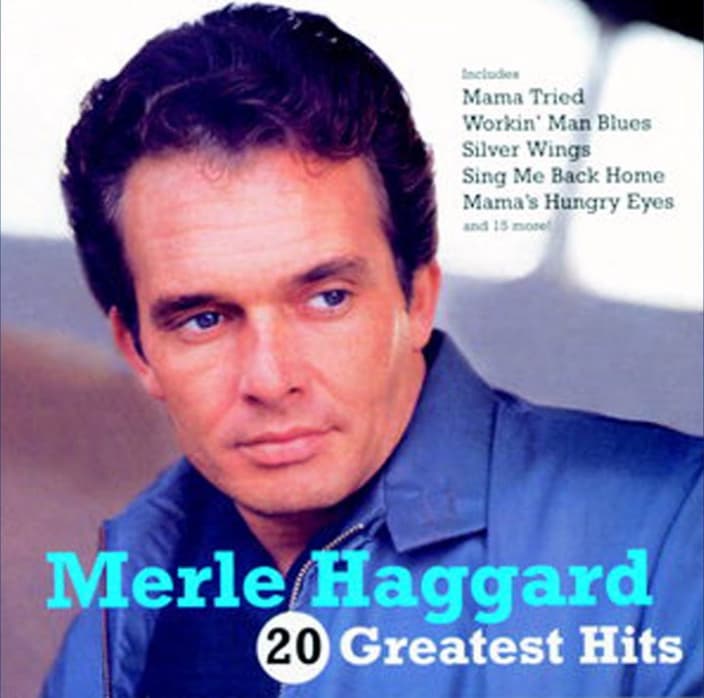
The Haunting Echo of a Farewell
Some songs, you just know. They don’t hit you like a new tune on the radio; they feel like they’ve always been there, a part of the air you breathe. Merle Haggard’s “Silver Wings” is one of those timeless pieces, a melancholy masterpiece that captures a moment of raw, universal sorrow. Released in 1969 as the fourth track on the iconic album Okie from Muskogee, this song didn’t chart as a single, yet it became one of the most cherished and enduring tracks in his immense catalog. Its commercial performance, or lack thereof, on the singles charts is a testament to the fact that some songs are too profound for the fleeting metrics of pop success. Instead, they find their place in the heart, passed down like old family stories.
The story behind the song is as simple and poignant as the lyrics themselves. Merle Haggard was on an airplane, a Boeing 707, flying from Phoenix to Los Angeles with his then-wife and fellow artist, Bonnie Owens. He looked out the window and saw the plane’s gleaming wing, its metallic surface catching the sunlight. It was a moment of profound inspiration, a visual metaphor for the heartbreaking act of a loved one leaving. He turned to Bonnie and said that those words—”silver wings”—would make a great title for a song. He wrote the tune on the plane, channeling the heartache of a goodbye into a soaring, yet deeply grounded, ballad.
The meaning of “Silver Wings” is a quiet, devastating study in loss and the quiet helplessness that accompanies a final farewell. The narrator is watching a plane carry away the person he loves, and he’s left behind, rooted to the ground. The airplane, with its “roaring engines” and “silver wings,” becomes an almost cruel symbol of his lover’s departure. The gleaming metal, which to others might represent progress and adventure, is a symbol of his crushing loneliness. The song is a plea that goes unanswered, a final desperate cry of “Don’t leave me, I cry / Don’t take that airplane ride.” It’s a sentiment so raw and genuine, it transcends the specific setting of an airport. It’s about being on the wrong side of a goodbye, watching your world shrink as another’s expands and flies away.
Haggard’s genius lies in his ability to make this intensely personal moment feel so relatable. He doesn’t need to shout to be heard; his heartache is conveyed in the somber, shuffling rhythm and the mournful sound of his voice. The song isn’t a flamboyant display of emotion, but a quiet, reflective sigh. It evokes a time when heartbreak wasn’t a spectacle but a private, deeply felt experience. For those who grew up with this music, it recalls a world of simpler sorrows and profound feelings, where a few well-chosen words could say more than a thousand empty promises. It’s a song to be played alone, with a glass of something strong, as you let the memories wash over you like a gentle, sorrowful rain. The legacy of “Silver Wings” isn’t in its chart position, but in its ability to capture a feeling that words often fail to describe. It’s the sound of a tear falling, the echo of a last word, the quiet ache of a memory fading out of sight, just like those “Silver Wings”.